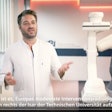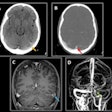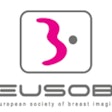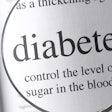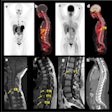
NEW YORK (Reuters Health), Jul 12 - Both fecal occult blood testing and flexible sigmoidoscopy represent feasible and acceptable approaches to colorectal cancer screening in normal-risk men and women, Italian researchers conclude.
Their evaluation of the two screening tests along with colonoscopy found that while colonoscopy boosts the detection rate for advanced neoplasia by 42%, it is associated with a 26% reduction in the screening test response rate.
Dr. Nereo Segnan of CPO Piemonte in Torino and colleagues from the SCORE3 Working Group compared the effectiveness and acceptability of biennial immunologic fecal occult blood testing, a single flexible sigmoidoscopy, and a single colonoscopy in the primary care setting.
The six-center study included more than 18,000 randomly selected patients between 55 and 64 years old who hadn't been screened for colorectal cancer in the past two years. Each patient was invited by a letter from his or her general practitioner to have one of the three tests, and was not offered a choice of which test to have.
Among patients offered fecal testing and sigmoidoscopy, 32.3% of both groups went for screening, compared to 26.5% of those offered colonoscopy, the researchers found.
Colorectal cancer was identified in 0.1% of the patients who had fecal testing and 1.1% had an advanced adenoma. Corresponding detection rates were 0.6% and 4.5% among patients tested with sigmoidoscopy, and 0.8% and 6.3% among patients given colonoscopy.
The investigators calculate that if acceptance rates for sigmoidoscopy and colonoscopy were the same, 48 colonoscopies would be necessary to detect one additional advanced neoplasm missed by sigmoidoscopy.
"Our study suggests that either (immunologic fecal occult blood testing) or flexible sigmoidoscopy represent methods capable of being done and accepted by the population in screening programs for colorectal cancer," Dr. Segnan and his team conclude.
In an editorial accompanying the study, Dr. David Lieberman of Oregon Health and Science University in Portland points out that the Italian study shows that offering people a single option for colorectal cancer screening produces "a rather dismal rate of adherence."
One site in the study that offered "extensive public education" to people in the community achieved a 52% average attendance rate, Dr. Lieberman notes, suggesting that this strategy could be an effective way to boost participation in screening programs.
Gastroenterology 2007;132:2304-2312, 2591-2594.
Last Updated: 2007-07-11 14:45:10 -0400 (Reuters Health)
Related Reading
Immunochemical fecal occult blood test accurately detects colorectal neoplasia, February 21, 2007
Copyright © 2007 Reuters Limited. All rights reserved. Republication or redistribution of Reuters content, including by framing or similar means, is expressly prohibited without the prior written consent of Reuters. Reuters shall not be liable for any errors or delays in the content, or for any actions taken in reliance thereon. Reuters and the Reuters sphere logo are registered trademarks and trademarks of the Reuters group of companies around the world.







